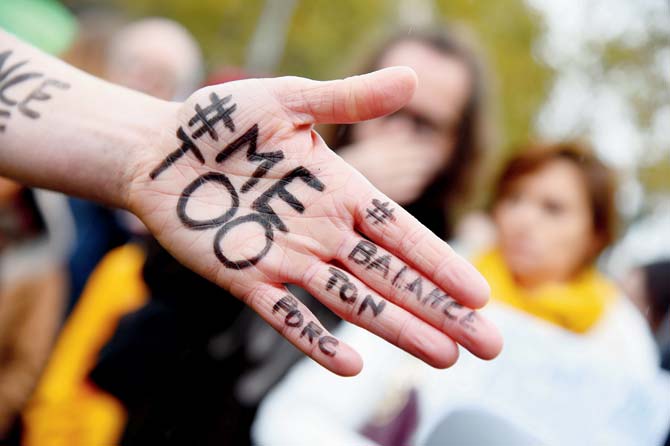Following the allegations against film producer Harvey Weinstein, millions of women have shared their stories of sexual harassment

 The allegations of sexual assault made against one of Hollywood's most powerful producers, Harvey Weinstein, have thrown open to scrutiny once again the minefield of gender relations and the chequered history of feminism across the world. Weinstein, we now learn, harassed and assaulted some of Hollywood's most powerful and accomplished actresses and stars and, yet, has been protected until now by a common code of silence.
The allegations of sexual assault made against one of Hollywood's most powerful producers, Harvey Weinstein, have thrown open to scrutiny once again the minefield of gender relations and the chequered history of feminism across the world. Weinstein, we now learn, harassed and assaulted some of Hollywood's most powerful and accomplished actresses and stars and, yet, has been protected until now by a common code of silence.
ADVERTISEMENT

Millions of women have come forward through the #MeToo campaign to share their experiences of sexual assault and to show solidarity with other survivors. Pic/AFP
Once the allegations became public and big names like Gwyneth Paltrow and Angelina Jolie spoke up, the subject of sexual predators has taken over the world, sort of. The #MeToo campaign on social media has seen millions of women sharing that they have been assaulted, and showing solidarity with other survivors.
But, the sisterhood is not a large unified movement. As we have seen in an ugly carbuncle of outrage, feminists pitted against each other in India. The problem of sexual predators has instead been buried under a battle between old-style feminists and millennials. The cause of contention is a list compiled by a 24-year-old lawyer of Indian male academics that women students should avoid. The compiler says that the list is based on the experiences of women she is in touch with. However, the list does not mention what exactly these men are accused of, although the compiler says she has that information.
Some (older) feminists feel that the list is unfair because it does not follow due process, and that unsubstantiated allegations can ruin reputations and careers. The younger women feel that these feminists have become slaves to the system, which has done precious little to address their problems.
Suppose you find yourself in the unhappy conflicted position of seeing the importance of what older feminists are saying, but at the same time, understand the anger and frustration of the younger women and contributors to 'the list'. The general rule has been so far that perpetrators will get away with it. That bullies, predators and abusers, whether at home, in educational institutions and work places, are often protected by society and by their peers. The fear of being 'unfair' in a legal and social sense by the older feminists becomes a fetter, rather than a helping hand, when it comes to women who are abused.
We all know that as a woman, you are particularly vulnerable when you enter a public space. You lower your eyes to avoid eye contact when you feel threatened. You learn how to make your body smaller. Occasionally, some women will use their elbows or umbrellas in crowded areas to ward off possible assaults. Not all these tactics work, and we all know the horrific consequences.
But, rape as a form of assault is the extreme. It is possible to be attacked in small ways every day, by unwanted touch, by unsought advances, by public shaming, which can gradually destroy your confidence and sense of self.
There are no legal defences to this sort of behaviour, and whatever we have is difficult, slow, tedious and half-baked. And, that is why some women have taken recourse to compiling lists of predators.
Much as I admire those feminists and people who have spent their lives fighting for justice and attempting to put up systems to deal with abuse of all sorts, I can understand the anger and the motivation of younger women. In all the years I have worked, I have not seen any such case or complaint go the way of the women concerned. Somehow, the system has managed to protect the alleged perpetrator - often using the same arguments used by these older feminists. The cases where men are held accountable for their behaviour are so rare that you can practically count them on the fingers of one hand.
We stand, as I see it, at a crossroads. We cannot progress without both or all sides of the argument coming to some sort of compromise or understanding. To make an unsubstantiated accusation does not serve the cause, yes.
But, to fall back only on 'due process', is to stultify the women's movement in gobbledygook and red tape and get entrapped by patriarchy - the very thing we are trying to free ourselves from.
My instinct is to offer solidarity and strength to the women who feel victimised and want to speak out. Why patronise them? After all, isn't that what they (and us) are fighting against?
Ranjona Banerji is a senior journalist. You can follow her on Twitter @ranjona. Send your feedback to [email protected]
 Subscribe today by clicking the link and stay updated with the latest news!" Click here!
Subscribe today by clicking the link and stay updated with the latest news!" Click here!






